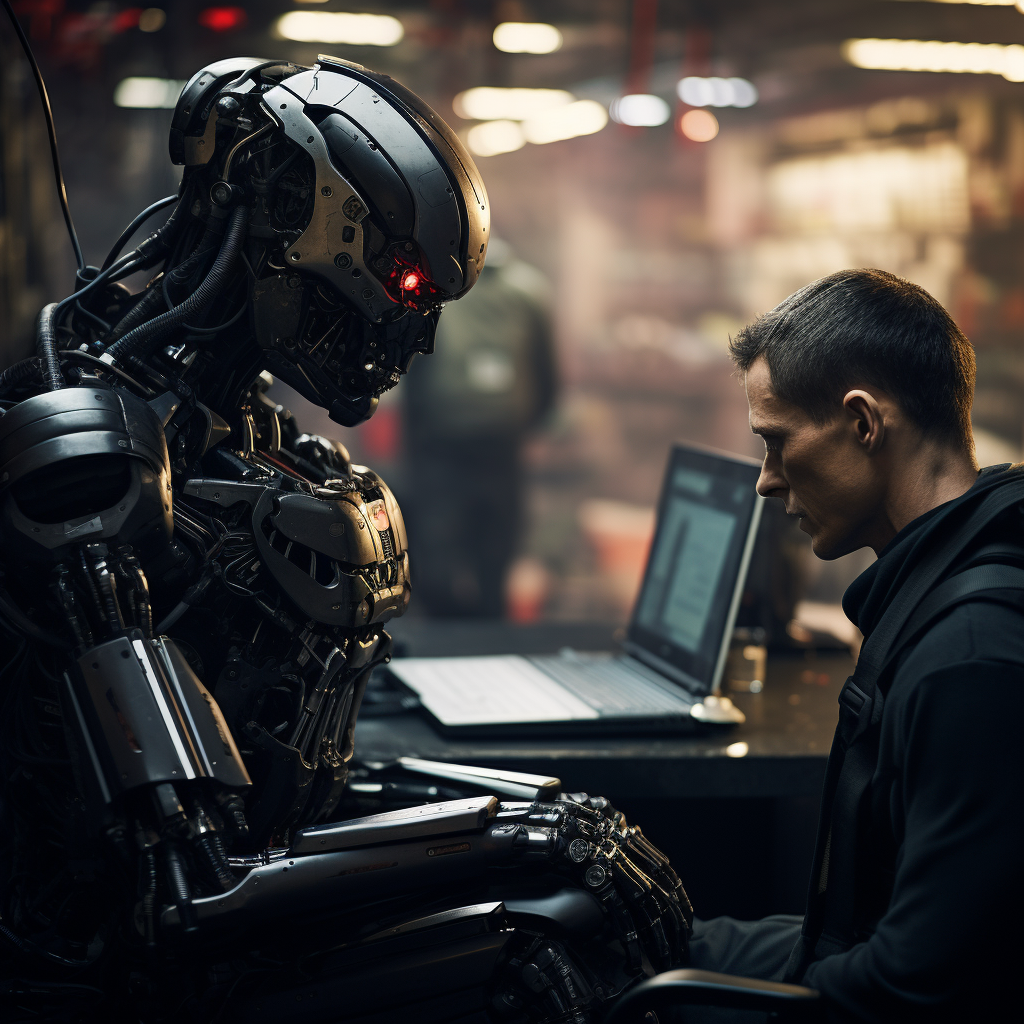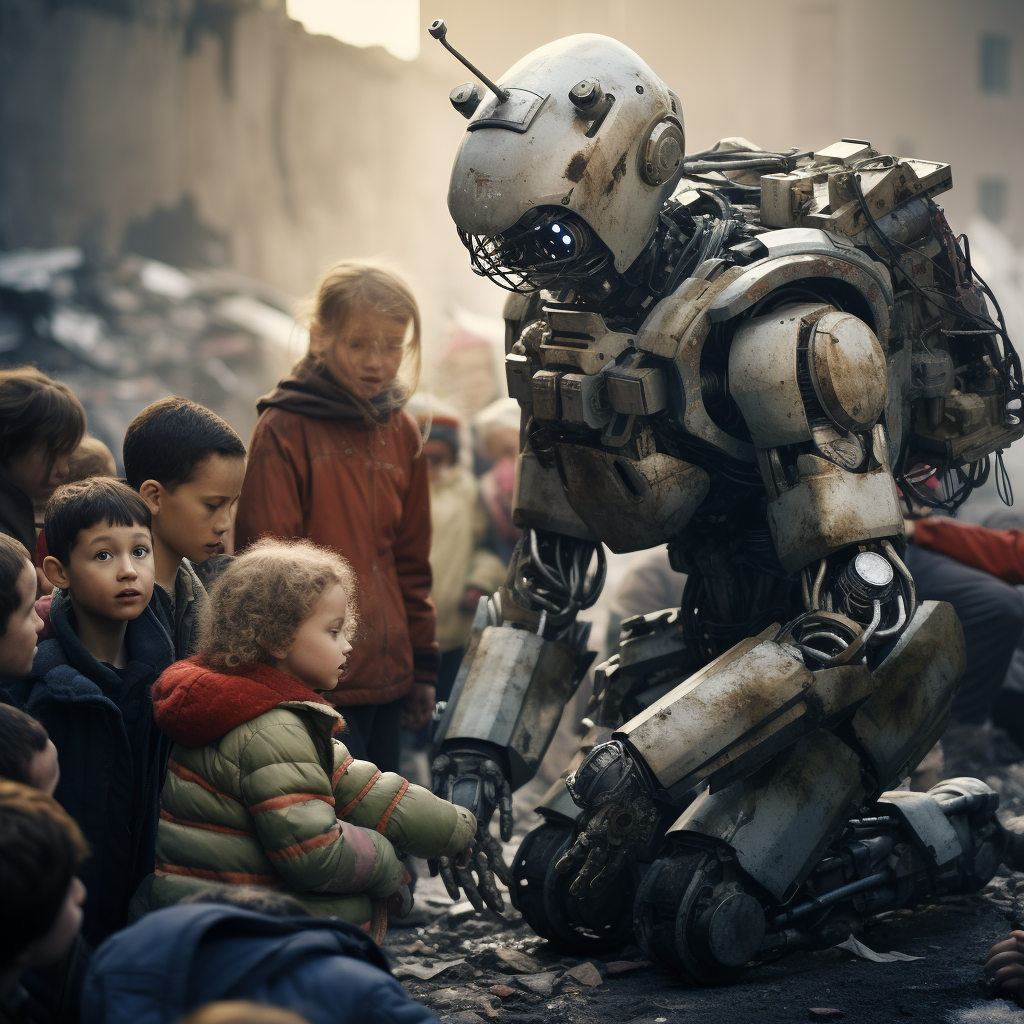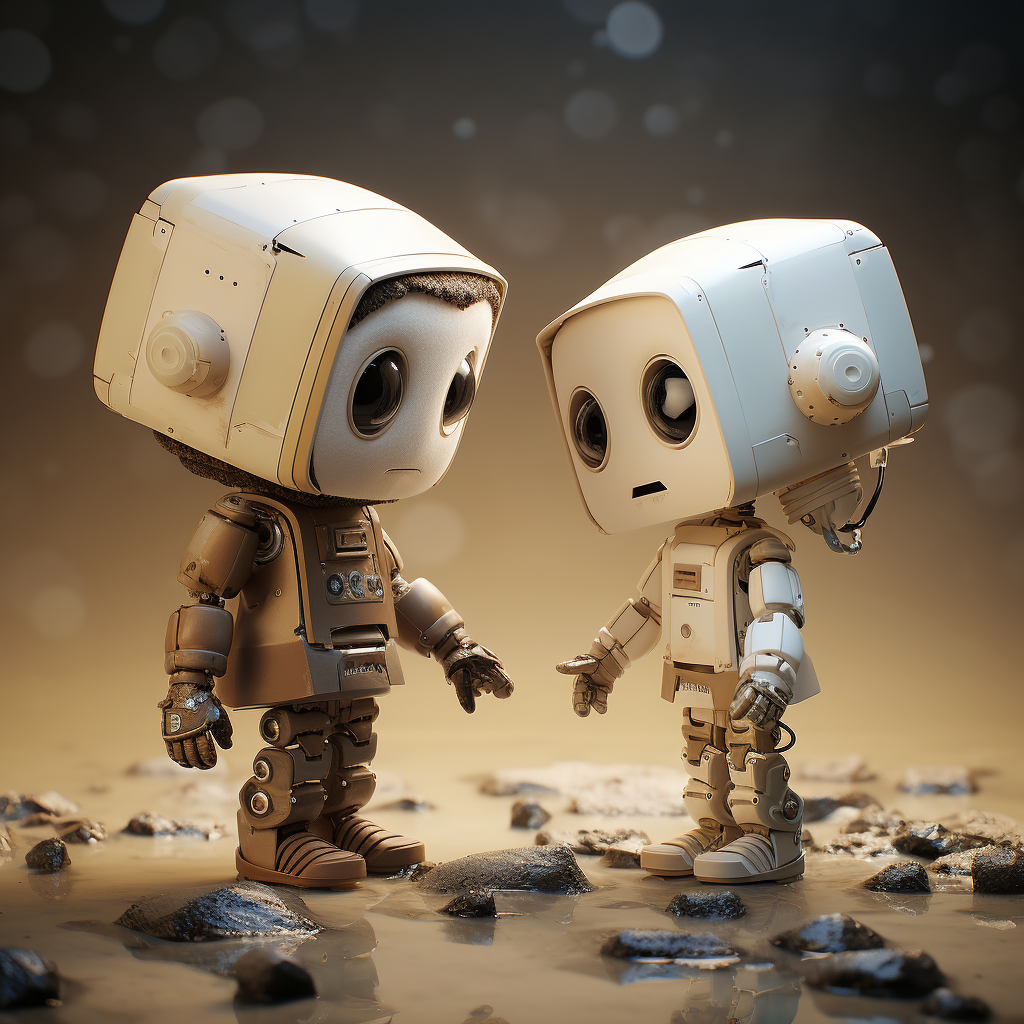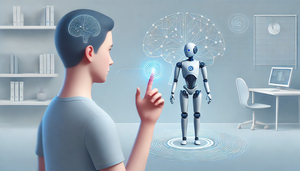Introduction: The Epoch of Technological Warfare
The annals of human history are replete with the tales of our ceaseless endeavor to dominate and protect, to wage wars and broker peace. From the first sharpened stone thrown by an ancient warrior to the guided missiles of today, our tools of warfare have been emblematic of our technological prowess and our moral evolution. Yet, as we stand at the crossroads of the 21st century, we find ourselves amidst a paradigm shift so profound that it threatens to upend millennia of established ethics and philosophies. The dawn of defense robotics.
No longer are wars merely the affairs of flesh and blood; they are rapidly becoming the theater where silicon and code play decisive roles. But with this groundbreaking advancement comes a deluge of moral quandaries. When the instruments of war can think, decide, and act, where does it leave the age-old tenets of human judgment, morality, and accountability? As we venture further into this brave new world, it is imperative, now more than ever, to pause and reflect on the ethical implications of our creations. For in the mechanized eyes of a defense robot, we might just find a mirror to our own souls, fraught with both potential and peril.
Challenging the Bedrock of Warfare Ethics
War, in its very essence, has always been a testament to the human spirit's duality: our capacity for destruction juxtaposed against our ability to recognize, and at times, uphold morality even in the bleakest circumstances. The rules of engagement, the Geneva Conventions, the very fabric of just war theory – all were conceived in the acknowledgment of this duality. But how does this ethical architecture withstand the integration of an entity that lacks human consciousness, emotions, or the intrinsic understanding of right and wrong?
Enter the world of defense robotics, a realm where binary code meets the battlefield. As algorithms take on tasks once reserved for soldiers, we're compelled to ask: Can a robot discern the ethical nuances that a human soldier, with all their imperfections, has been trained to recognize? When a drone, governed by lines of code, hovers over a potential target, does it grasp the weight of its imminent decision?
Historical reflections further complicate this narrative. Consider the advent of the longbow or the machine gun—innovations that drastically altered the course of warfare. Each was met with trepidation and ethical scrutiny. But defense robots introduce a unique conundrum. Unlike their historical counterparts, they don't just change how wars are fought; they challenge who or what gets to make the moral decisions.
Culturally, too, this evolution is significant. In societies that hold the warrior's code in high esteem, where honor, bravery, and sacrifice are lauded, how does the impersonal, unfeeling nature of a robot fit in? Does it diminish the value of human bravery, or does it, in its own way, exemplify a new form of valor – that of intellectual innovation and the pursuit of minimizing human loss?
The questions are manifold, the answers elusive. But as we stand on this precipice of change, it is these very questions that will shape the future of warfare and determine whether we retain our ethical compass in an age of mechanized conflict.
The Life-Saving Paradox
Human history has always been a tale of progress, oftentimes marked by inventions that promised to safeguard and amplify life. Defense robots, in their core intent, aspire to do just that – protect soldiers, reduce casualties, and ultimately, save human lives. But this shimmering promise presents a paradox that challenges our very understanding of ethics in warfare.
Imagine, if you will, a battlefield of the not-so-distant future. The sky is dotted with drones, while on the ground, robotic soldiers navigate the treacherous terrain. The human cost, in terms of lives lost, is significantly reduced. A utopian vision, one might say. But is it?
When we remove the human element from direct combat, do we inadvertently make the initiation of conflict more palatable? Without the looming specter of body bags returning home, might nations be more inclined to engage in wars, knowing the human toll is minimal? This is the paradox: the very tools designed to save lives could, in theory, lead to more frequent conflicts.
This philosophical conundrum is not new. Throughout history, the introduction of more efficient weaponry—be it the crossbow, gunpowder, or the nuclear bomb—has often been justified with the promise of quicker resolutions and fewer casualties. Yet, each has also amplified the scale and scope of destruction.
Furthermore, from a cultural vantage point, how do societies reconcile with a new form of warfare where human soldiers are no longer at the forefront? In many cultures, the narrative of war is intrinsically tied to human valor, sacrifice, and heroism. In a world dominated by machines, does the narrative shift from human courage to technological prowess? And if so, what are the implications for our collective psyche?
As we grapple with these questions, we're not merely pondering the future of warfare. We are, in essence, reflecting on the nature of humanity itself, and how our creations might reshape our understanding of life, death, and the gray areas in between.
The Autonomy Conundrum: When Machines Decide
In the vast annals of human endeavor, autonomy has always been a concept cherished and championed. The quest for self-determination, the ability to decide one's fate, is deeply entrenched in our collective consciousness. But what happens when this quest leads us to craft entities that possess a semblance of autonomy themselves?
The defense robots of today and tomorrow stand at the crossroads of this philosophical musing. Endowed with sophisticated algorithms, these machines can make split-second decisions on the battlefield, potentially outpacing the human mind's deliberative process. But with this newfound speed comes a profound ethical dilemma: Can, and should, machines make life and death decisions?

Centuries ago, the Greek philosopher Aristotle mused on the nature of decision-making, emphasizing the role of ethics and virtue. In the modern era, how do we reconcile Aristotle's musings with a machine's binary logic? A robot, unburdened by emotions or the weight of moral philosophy, operates in the realm of zeros and ones. Can such an entity ever truly understand the profound weight of a life taken or spared?
This challenge is further accentuated when we dive into the cultural fabric of societies worldwide. In some cultures, the idea of an autonomous machine making critical decisions might be seen as a logical progression, a testament to human ingenuity. In others, it might be viewed with skepticism or even outright disdain, perceived as a dangerous overreach of technology into domains reserved for human judgment.
The underpinnings of this debate also hark back to historical precedents. The introduction of the printing press, the steam engine, and even the internet—each was met with a mixture of awe and apprehension. But defense robots present a unique challenge. It's not just about changing the mechanics of a process; it's about potentially ceding moral and ethical judgment to lines of code.
As society grapples with these profound questions, the answers might not be readily evident. But the journey of introspection, of weighing the marvels of technology against the timeless tenets of human morality, is one that is both necessary and inevitable.
Accountability in a Mechanized Era
In the intricate dance of human history, the concept of accountability has always stood as a beacon, guiding societies through ethical mazes and moral quagmires. From ancient tribunals to modern courts, the idea that actions, especially those with significant consequences, must be answerable to a higher authority is a cornerstone of civilization.
Yet, as we usher in an era where machines not only partake in but also make decisions on the battlefield, the traditional scaffolding of accountability finds itself shaken.
If a defense robot, operating autonomously, were to make a decision resulting in unintended civilian casualties, where does the finger of blame point?
Is it the programmer who wrote the algorithm?
The commander who deployed the machine?
The policymakers who sanctioned its use?
Or does the blame lie with the very society that allowed for such a creation?
Historically, the burden of wartime decisions, and their subsequent consequences, has always rested on human shoulders. From generals strategizing moves to soldiers pulling triggers, the line of responsibility, though complex, was human-centric. In stark contrast, the modern mechanized battlefield introduces a nebulous territory. Machines, despite their sophistication, lack the conscience, remorse, or moral reflections inherent to humans. Can we then, in good conscience, assign them culpability?

Diving deeper into the philosophical abyss, one might ponder the nature of blame itself. In traditional scenarios, blame often comes paired with intent. A soldier, a general, or even a nation might be held accountable based on their intentions, be they noble, malicious, or misguided. But can intent be attributed to a machine, an entity that operates on logic devoid of emotion?
Culturally, the ramifications are profound. Societies worldwide have, for millennia, grappled with the idea of justice, often seeking to balance retribution with redemption. In the shadow of defense robotics, these age-old concepts might need reevaluation. After all, how does one mete out justice to lines of code?
The answers are neither simple nor definitive. But as the lines between man and machine blur, the quest for these answers becomes not just an academic exercise, but a moral imperative for the ages.
The Ethical Precipice of Weaponization
As the horizon of technological innovation continues to expand, the weaponization of robotics emerges as both a marvel of human ingenuity and a potential Pandora's box. The allure of machines—unyielding, efficient, and unburdened by the frailties of human emotion—on the battlefield is undeniable. Yet, this very allure casts a shadow of profound ethical dilemmas.
Consider for a moment the nature of conflict. At its core, warfare has always been a tragic confluence of political objectives and human cost. But as we introduce autonomous robots into this equation, the calculus of war transforms. Battles could be fought without the direct shedding of human blood, but does this sterility make war more palatable, even routine?
History offers a sobering lens. The trebuchets of the Middle Ages, the muskets of the Renaissance, and even the nuclear weapons of the 20th century—each weapon altered the landscape of conflict, pushing societies to grapple with newfound powers and the responsibilities they entailed. However, defense robots stand apart. Unlike weapons of yore, these entities possess the ability to 'decide', to 'act', and potentially, to 'kill'. But devoid of a moral compass, how do these machines interpret the value of life?
One might argue that the algorithms governing these robots could be refined, made more discerning. But can lines of code ever truly replicate the intricate tapestry of human ethics, shaped by millennia of culture, philosophy, and introspection?
From a societal perspective, the integration of robots in warfare also invites reflection on the very nature of heroism. In epochs past, tales of bravery, sacrifice, and valor have served as both inspiration and caution. If machines become the primary actors on the battlefield, do we risk losing these narratives? Or perhaps, will new tales emerge, not of human heroes, but of the creators, the engineers, and the ethicists who sought to chart a righteous path in a mechanized world?
As we teeter on the edge of this ethical precipice, the choices we make will echo not just in the annals of warfare, but in the very soul of humanity. The questions are profound, the stakes immeasurable, but the quest for ethical clarity remains our most pressing challenge.
The Future's Crossroads: Ethical Imperatives and Technological Evolution
In the relentless march of progress, humanity often finds itself at crossroads, where the paths of ethics and innovation intersect. Defense robotics, in its essence, epitomizes this confluence. As we stand on the cusp of a new era, where machines may potentially dominate the theater of war, the ethical imperatives become ever more pronounced.
Reflect for a moment on the very essence of technology. Historically, every significant leap, be it the discovery of fire or the invention of the wheel, was driven by a primal instinct: the desire to improve the human condition. Yet, as we venture into the realm of autonomous machines capable of lethal force, the question arises: Are we enhancing the human experience, or inadvertently sowing the seeds of unforeseen consequences?
The ancient Greeks, with their profound philosophical insights, often pondered the nature of 'hubris'—an overreaching pride that could lead to one's downfall. Are we, in our pursuit of technological mastery, displaying a form of modern hubris? By entrusting machines with the gravest of responsibilities, are we absolving ourselves of moral agency, or are we simply adapting to the inexorable tide of progress?
From a broader cultural lens, the integration of defense robotics also warrants introspection on the shared narratives of societies worldwide. War, in all its tragic manifestations, has also been a crucible of identity, values, and collective memory. If robots become central actors in future conflicts, how will societies remember and interpret these events? Will the tales of bravery and sacrifice be overshadowed by debates on algorithms and machine ethics?

As we navigate this intricate web of questions, the path forward might not be linear. There will be ethical quandaries, societal debates, and moral introspections. But in this journey, the ultimate objective remains unaltered: to ensure that the tapestry of human values, ethics, and morality remains intertwined with the threads of technological progress.
For in the end, it is not just about machines and codes; it's about the very soul of humanity, its aspirations, its fears, and its indefatigable quest for a better tomorrow.
The future of AI and robotics is not just about technology; it's about reimagining the very essence of humanity. Stay curious for the next chapter. 🤖✨




